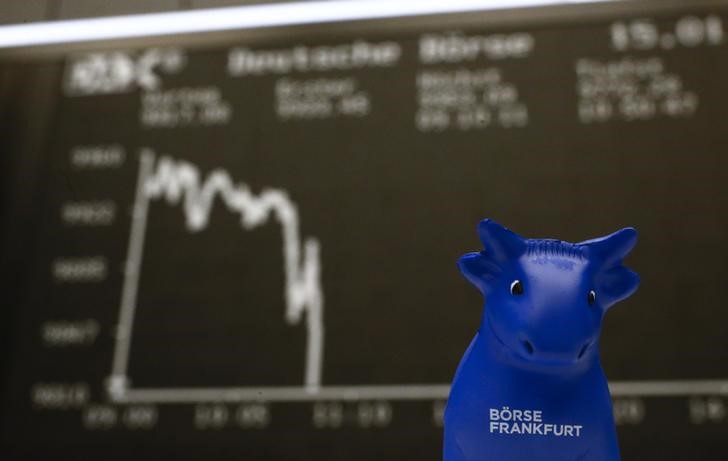This post was originally published on this site
https://i-invdn-com.akamaized.net/news/LYNXMPEE3O1QH_M.jpg
Investing.com – European stock markets traded sharply lower Friday, with investors cutting positions given the uncertainty surrounding the populist trading movement.
At 3:50 AM ET (0850 GMT), the DAX in Germany traded 1% lower, the CAC 40 in France fell 1.1% and the U.K.’s FTSE index dropped 0.9%.
Global stocks are set for their worst weekly slide in about three months, partly on the turmoil caused by small traders organizing over online forums, such as Reddit, to force hedge funds to reverse short positions on a series of stocks. This has resulted in these funds dumping other equity holdings in order to raise liquidity.
Popular online broker Robinhood, along with other brokerages, limited the trading ability of these retail traders for a time Thursday, but it stated that some restrictions will be lifted on Friday, raising fears that the volatility will resume.
This added to concerns about the slow rollout of vaccines in continental Europe, a region hard hit by the Covid-19 virus, which has culminated in a spat between the European Union and drugmakers over the distribution of limited supplies.
There was some good news on the subject, after biotech firm Novavax (NASDAQ:NVAX) said late Thursday that its coronavirus vaccine was more than 89% effective in protecting against the virus in its phase three clinical trial conducted in the United Kingdom.
In corporate news, Ericsson (BS:ERICAs) stock rose 7.8% after the Swedish telecommunications company Ericsson reported strong fourth-quarter core earnings on the back of healthy sales of 5G equipment.
Daimler (OTC:DDAIF) stock rose 1.6% after the German carmaker beat 2020 profit expectations on the back of a strong fourth quarter, and provided optimistic guidance for the next year.
On the downside, fourth-quarter results showing a marked deterioration in loan quality pushed BBVA (MC:BBVA) stock down 2.5% and led to losses across the rest of Eurozone banks. The Stoxx 600 Banks index fell 1.6%.
Commerzbank (DE:CBKG) stock dropped 1.1% after the troubled German bank announced plans to cut a further 10,000 jobs and close hundreds of branches.
French GDP shrank much less than expected at the end of last year, falling 1.3% in the final three months of 2020, compared with a forecast for a contraction of 4%. However, German and Spanish GDP both beat expectations, while German unemployment fell surprisingly sharply in January.
Oil prices largely stabilized Friday, as traders balanced concerns over weakening demand due to Covid-related travel restrictions against upcoming supply cuts from Saudi Arabia and falls in U.S. crude inventories, which fell last week by the most since July, to their lowest level since March.
Saudi Arabia, the largest exporter of oil in the world, is set to cut output by 1 million barrels a day in February and March in an attempt to balance a market hit by travel restrictions.
U.S. crude futures traded flat at $52.34 a barrel, while the international benchmark Brent contract rose 0.4% to $55.31.
Elsewhere, gold futures rose 0.3% to $1,846.60/oz, while EUR/USD traded 0.1% lower at 1.2117.

